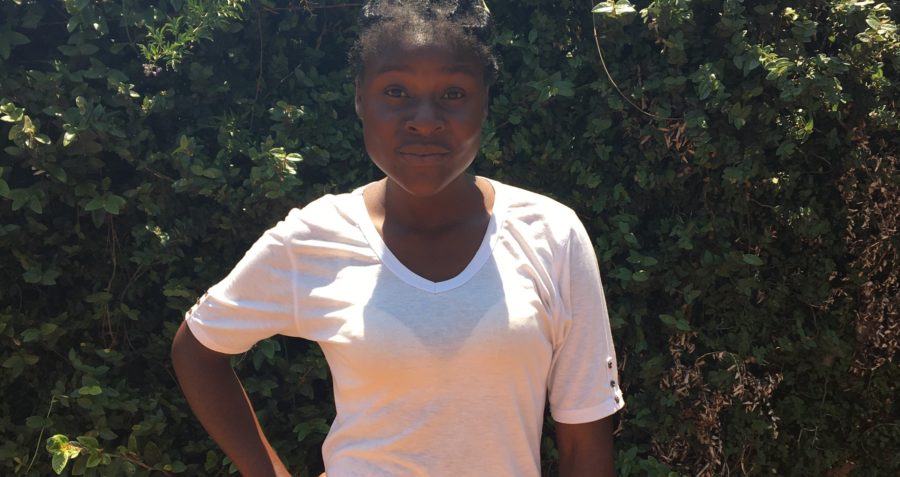Maria’s story: “They have to see us as human beings”
 Naomi Cromby / Frontline AIDS 2019
Naomi Cromby / Frontline AIDS 2019
Diagnosed with HIV at 18 and shunned by the community, Maria found solace as a mentee with the READY to Lead programme in Zimbabwe and went on to become a mentor herself.
What inspired me to become a READY to Lead mentor was looking at myself and my story as someone who tested [HIV positive] at 18.
I have no parents; I live with my maternal aunt. Being positive is very tough, especially when you are living with people who are not your biological parents. At some point they don’t understand you, they don’t feel what you’re going through.
In our community, they have little understanding on HIV. We are being set aside. They just say you are HIV positive so you must have your own cup, your own spoon, your own plate. You are not even allowed to sit at a family setup to eat. We are being seen as if we are dead. If you are HIV positive, they just say I’ll no longer play with her as you might contract HIV.
A centre of comfort
I want to help others who have the same situation that I have. I have to work for those who do not have information and do not have anyone to talk to. I must be their centre of comfort, like I found my centre of comfort in my mentors, so that we can have a bright future together.
I think of them [the mentors] as if they are my own family. I can discuss anything with them. I can be open because they understand me, because we are in the same shoes. They understand my pain. They feel what I have gone through and what I am going through so I feel very comfortable to talk to them about everything.
As young people from different groups we always find our way to communicate so, when someone has her own problem, we talk in person or on WhatsApp. We meet, we talk, we offer each other support and, if it’s an issue I can’t solve, I refer that person to a better person.
When I am at the health facility, I talk to the young people, I engage with them about the challenges they are facing. Young people who are sexually active ask: “What is safe sex and what is not safe sex? I don’t want to spread HIV and I don’t want to be pregnant because I am still going to school. What should I do?” I give them information and say: “You can use condoms and you can use other contraceptives that you are comfortable with. So you can proceed with your dreams.”
Time to be heard
Our main challenges are that we are being judged by the elders in the community. If we want to express our life experiences they are judgmental of us, saying these children of today don’t have values or norms at all.
The policy makers don’t include us; they make laws for us without our voices so they are excluding us when making their policies. They just say young people are doing this and this and this but they don’t even look at the reason behind why young people are doing this.
The government has to revise its way of addressing us. We are being stigmatised. They have to see us as human beings. I might have a passion to do catering, but if I’m HIV positive I’m not allowed to in Zimbabwe. I might have a passion for military work but if I’m HIV positive I can’t. We are not dead. We don’t have dead passions. We can do anything that we want, regardless of our status.
Maria was supported by READY to Lead, part of the READY portfolio of programmes designed to build Resilient and Empowered Adolescents and Young people (READY). READY to Lead strengthened the leadership and advocacy skills of 100 young women and adolescent girls in Zimbabwe, who in turn became mentors and role models to other young women.
Tags
HIV activismREADYReady to LeadStigma and discriminationYoung peopleZimbabwe
Will you help us end aids?
I would like to make a donation of:
Please enter the amount you would like to donate, ie: '10.00'
